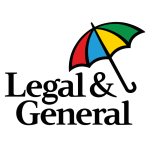"Many people do look to put their house into a trust, so they can avoid care fees and pass their home on to their children. However, this is not straightforward and your local authority may look at whether you put your home in trust solely for the reason to avoid your care costs."
UK Care Guide Tweet
How To Not Have To Sell Your Property When Going Into Care
“How to not sell your property when going in to care” is one of the most popular questions we get asked and people are keen to understand what their options are.
Many people do look to put their house into a trust, so they can avoid care fees and pass their home on to their children.
However, this is not straightforward and your local authority may look at whether you put your home in trust solely for the reason to avoid your care costs.
There is more information on this below. If you do find yourself having to find a care home, you can read more about it on this site.
Making the right decision at the right time can significantly increase the likelihood of you being able to retain your property, leave an inheritance and keep some disposable income behind for whatever you wish.
Therefore, on its own, you cannot sell your house to avoid care fees unless you have some specific financial circumstances or if your family home has already been put in trust.
This is why early planning is required. You also cannot put your assets into a trust purely to avoid care home costs. There is a risk that this could be seen as a deprivation of assets
























